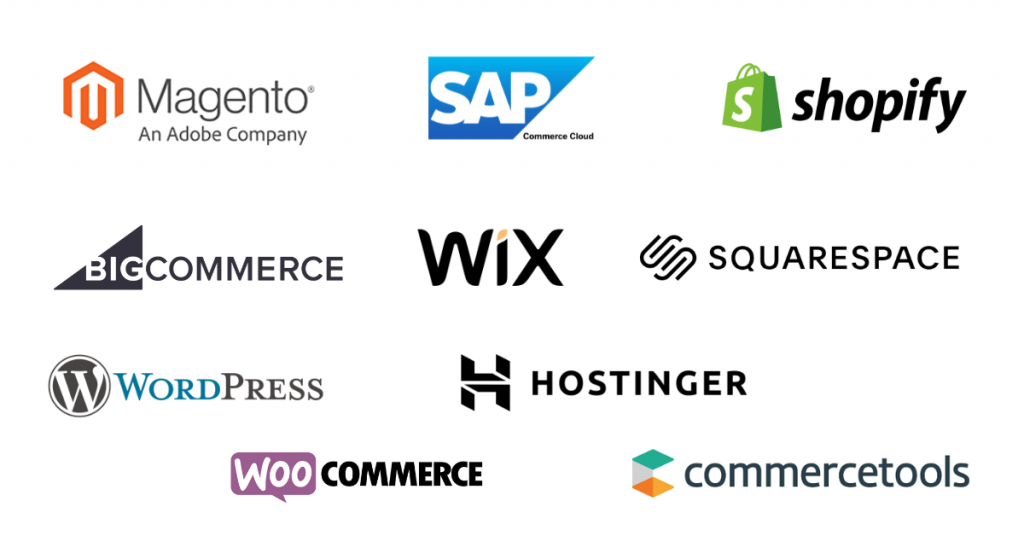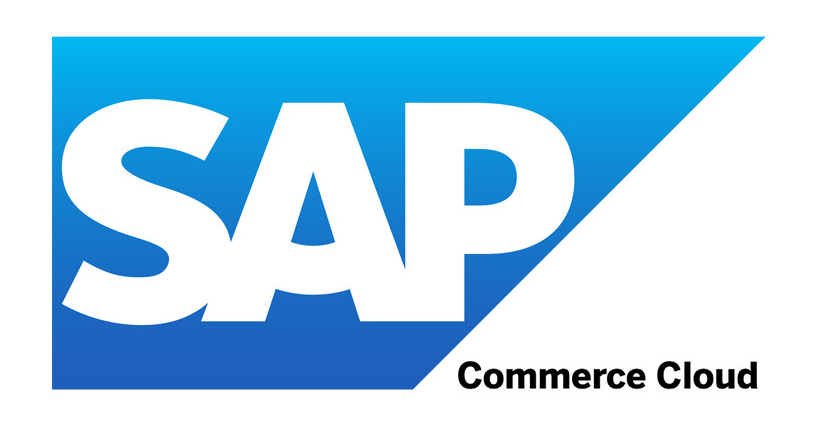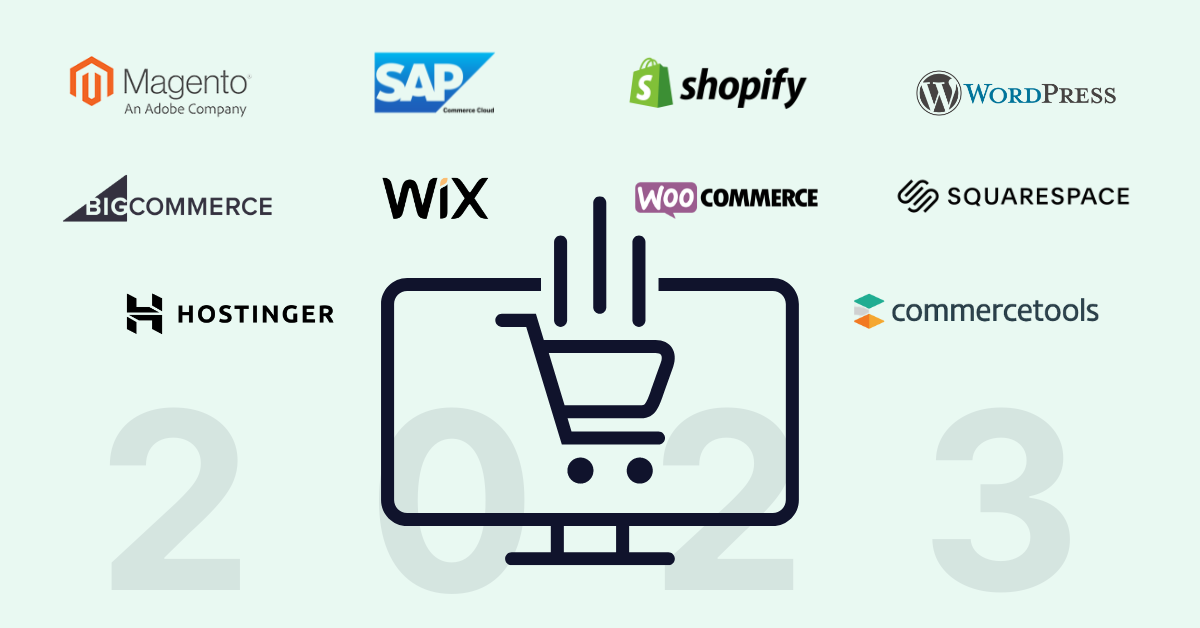In an era where digital presence has become a necessity for businesses, choosing the right eCommerce platform can make all the difference. In the journey of selling online, a well-chosen platform is your faithful companion, streamlining operations, boosting visibility, and providing a memorable customer experience. But how do you choose from a sea of eCommerce platforms, each boasting unique features and benefits? Let’s embark on this enlightening journey.
Summary
- Comparing the best eCommerce platforms for 2023, take into account user-friendliness, scalability, and customization capabilities
- Top platform options include Magento (Adobe Commerce), Shopify, BigCommerce, and Commercetools
- Mobile commerce integration with social media platforms alongside AI & personalization are key trends to consider when selecting a platform.
About eCommerce platforms
eCommerce platforms, often referred to as eCommerce software, are the backbone of any online business, acting as the digital storefront that showcases your products or services to the world. They are software applications that help you manage every aspect of your eCommerce store, from inventory management to payment processing and marketing campaigns. The best platforms are the ones that ensure your online store is not only functional but also engaging and easy to navigate.
There are three main types of eCom platforms: open-source, SaaS (Software as a Service), and headless commerce. Open-source platforms are free and highly customizable but require high technical expertise to set up and maintain. SaaS solutions are user-friendly and come with automated updates and enhanced security, making them a popular choice for beginners and small businesses. Headless commerce platforms offer the most flexibility, allowing you to choose your front-end technology while keeping the commerce functions separate.
Regardless of the type, a good eCommerce platform should come equipped with a range of critical features. These features include product pages, shopping carts, and other marketing and analytics tools. An online payment gateway and design customization options are also available. Moreover, inventory and order management software is included. The best eCom platforms also offer SEO tools to ensure your online store ranks high in search engine results, thus driving more organic traffic to your site.
Moreover, eCom platforms can be integrated with various systems. This includes ERP (Enterprise Resource Planning), CRM (Customer Relationship Management), and inventory management software. They provide third-party integration for an array of tasks. This includes email automation, multi-channel selling, accounting, and customer service. Hence, choosing the right eCommerce platform is not just about selecting a tool; it’s about choosing a solution that can seamlessly blend with your existing systems and augment your online business operations.
Types of eCommerce platforms
Every business has unique needs, and the type of platform you choose should align with these needs. Let’s dive deeper into the three main types of eCommerce platforms and examine their advantages and drawbacks.
Open-source eCommerce platforms, like the open-source eCommerce platform we are discussing, offer a significant level of control and customizability. They are usually free, and you can modify them to suit your specific requirements. This freedom comes with a price, though. Open-source platforms require a high degree of technical expertise to set up and manage, and they can be costly to maintain.
SaaS eCommerce platforms are typically more user-friendly and easier to manage. They come with enhanced security and automatic updates, which can be a lifesaver for those new to eCommerce. However, their customization capabilities can be limited, and you might encounter extra costs and obstacles for third-party services.
Last but not least, headless commerce platforms provide a high level of flexibility. They separate the frontend and backend of your eCommerce site, allowing you to choose the technology you want to use for each. However, they require APIs, engagement tools, experience managers, and an IT team.
Understanding these types will help you make an informed decision when choosing the best eCommerce platform for your online store.
Key features of eCommerce platforms
When selecting an eCommerce platform, it’s crucial to consider its key features. These features will determine the functionality, usability, and efficiency of your online store. Usability is a significant factor to consider. A platform’s user interface should be intuitive, making it easy to list items, accept online payments, and manage inventory. The best eCommerce platforms offer a user-friendly interface that makes these tasks a breeze, even for those with little technical knowledge.
Customization capabilities are equally important. Your eCommerce platform should allow you to tailor your online store to match your brand identity. It should offer SEO features, various payment gateways, and multi-channel options to enhance your store’s visibility and reach.
Your chosen platform should also support a wide range of payment gateways and integrations. This ensures a seamless shopping experience for your customers and allows for easier management of your online business operations.
In summary, the best eCommerce platforms are those that balance usability, customization, and integration capabilities, providing comprehensive eCommerce solutions that can adapt to your business needs and facilitate the growth of your online store.
Top eCommerce platforms for 2023

As we step into 2023, let’s look at the top popular eCommerce platforms shaping the eCommerce space. These platforms have been chosen based on their features, performance, and user reviews. They serve as a testament to the evolution of eCommerce platforms, reflecting technological advancements and changing consumer preferences. Magento (Adobe Commerce), Shopify, BigCommerce, Squarespace, Wix, WordPress, Commercetools, SAP Commerce Cloud, WooCommerce, and Hostinger are among the leading eCommerce platforms for 2023. These platforms offer an array of features, ranging from abandoned cart email and personalized products to ratings and reviews, catering to the diverse needs of online businesses.
What sets these platforms apart is their focus on delivering an exceptional user experience. They are designed to be intuitive and user-friendly, enabling businesses to set up their online stores with ease. In addition, they offer robust functionalities and integrations that streamline business operations and facilitate growth.
However, it’s important to remember that every business is unique, and what works for one may not work for another. Therefore, assessing your business needs and objectives is crucial before choosing an eCommerce platform. This ensures that the platform you choose aligns with your business model and growth plan, ultimately setting you up for success in the eCommerce space.
As we delve deeper into each of these platforms in the subsequent sections, you’ll get a clearer picture of what each platform offers and how it can cater to your business needs. This will help you make an informed decision when choosing the best eCommerce platform for your online store.
Magento (Adobe Commerce)

First on our list is Magento, now known as Adobe Commerce. Known for its robust features and flexibility, Magento has made its mark in the eCommerce space, serving as a reliable platform for many online retailers worldwide. Magento is unique from most eCommerce platforms in its offering of pre-built integrations with Adobe software and the wide range of extensions available in its marketplace, which can significantly enhance the functionality of your eCommerce store. It also supports Progressive Web Applications (PWAs), providing a seamless user experience across various devices.
However, Magento isn’t without its drawbacks. The platform requires merchants to manage patches independently, including security patches, which can be challenging for those without technical expertise. Furthermore, Magento’s initial package does not include support staff, meaning you’ll have to pay extra for dedicated support.
Despite these challenges, Magento remains a strong contender in the eCommerce space. Its flexibility, extensive features, and integration capabilities make it a viable option for businesses with specific needs and higher technical ability.
In the following subsections, we’ll explore more top eCommerce platforms and delve deeper into their key features, advantages, and potential drawbacks.
Shopify

Shopify is a front-runner in the eCommerce space, renowned for its user-friendly interface and scalability. Setting up an online store with Shopify is a breeze, even for those without technical expertise. Shopify offers a plethora of features, including abandoned cart email, personalized products, and ratings and reviews. It also provides a 3-day free trial, giving merchants a chance to explore its features and functionality before committing to a paid plan.
However, Shopify isn’t without its limitations. While it is designed to process high sales volumes, its customization options can be limited. Additionally, it charges transaction fees, which can add up over time.
Despite these potential drawbacks, Shopify remains a popular choice among eCommerce businesses. Its ease of use, scalability, and comprehensive app ecosystem make it an attractive option for businesses of all sizes.
BigCommerce

Next up is BigCommerce, a popular eCommerce platform known for its product management capabilities, customization options, and affordable pricing plans. It’s an excellent choice for businesses with an extensive product selection. BigCommerce comes packed with features. From abandoned cart emails, personalized products, ratings, and reviews to a 3-day free trial and more than 65 payment solutions, BigCommerce covers all bases to ensure a smooth eCommerce experience.
While BigCommerce offers an impressive range of features, it also has its limitations. Its customization capabilities can be limited, and you might encounter extra costs and obstacles for third-party services. Despite these drawbacks, BigCommerce remains a solid option for businesses seeking a comprehensive eCommerce solution.
Commercetools

Commercetools offers a unique proposition as a headless commerce platform. It provides a flexible data model and utilizes MongoDB as its backend, making it an ideal choice for businesses that require a flexible and scalable solution. Commercetools offers various features, including Merchant Center, Product Information Management, Carts and Orders, Payment and Shipping, Machine Learning and AI, and robust Discount Handling. These features make it a versatile platform that can cater to a wide range of eCommerce needs.
However, like any platform, Commercetools has its challenges. It requires APIs, engagement tools, experience managers, and an IT team, which might be a hurdle for businesses without a robust technical team.
SAP Commerce Cloud

SAP Commerce Cloud is a robust, enterprise-level eCommerce platform that offers comprehensive capabilities and specialized accelerators for specific verticals. It also provides powerful content management for identifying products, catalogs, and promotions and promotes sustainability through recommerce.
However, SAP Commerce Cloud may not be the best fit for all businesses. It is an enterprise-level platform, which may be too complex and costly for smaller businesses. Additionally, it requires a certain level of technical proficiency to configure and sustain.
Despite these potential drawbacks, SAP Commerce Cloud remains a reliable choice for large enterprises looking for a robust and feature-rich eCommerce solution.
WooCommerce

WooCommerce is a popular WordPress plugin that turns your WordPress site into a fully functional eCommerce store. It is known for its ease of installation and use, making it a popular choice among WordPress users. WooCommerce offers features such as automated customer service, intelligent product recommendations, predictive analytics, and personalized product recommendations. It also provides a mobile app for managing orders and viewing analytics.
However, WooCommerce may present some challenges. Store owners must manage their own PCI compliance, and there may be additional costs for features such as abandoned cart recovery and single-page checkout. Despite these potential challenges, WooCommerce remains a strong contender in the eCommerce platform space, particularly for WordPress users.
Wix

Wix is another popular choice in the eCommerce space, mainly known for its user-friendly website builder. With Wix, you can set up your own online store in no time, even without any technical knowledge. Wix offers a range of eCommerce features, including tracking orders, accepting online payments, selling products on multiple channels, and creating abandoned cart campaigns. These features make it a great choice for businesses looking for a simple yet functional eCommerce solution.
While Wix is user-friendly, it has its limitations. It functions primarily as a website builder and secondarily as an eCommerce solution, meaning it may lack some advanced functionalities and integrations that other eCommerce platforms offer.
Squarespace

Lastly, we have Squarespace, a platform known for its design-focused approach to eCommerce and web hosting. Squarespace provides professional templates and automated emails, along with customizable templates with integration with social media channels, making it a suitable choice for creatives and entrepreneurs.
However, Squarespace may not be the best option for everyone. Its customization capabilities can be limited, and it does not offer telephone support. Despite these potential drawbacks, Squarespace remains a solid choice for businesses that prioritize aesthetics and design in their eCommerce journey.
Choosing the right eCommerce platform for your business
After exploring the top eCommerce platforms for 2023, it’s clear that each platform offers unique features and capabilities. However, the best eCommerce platform for your business is the one that aligns with your specific needs, budget, and long-term goals.
When selecting an eCommerce platform, consider the following factors: scalability, ease of use, and scalability.
Budget considerations
Budget is a crucial factor to consider when choosing an eCommerce platform. The cost of eCommerce platforms can vary significantly, depending on the platform, the necessary features, and the size and scope of your eCommerce website. Therefore, it’s important to set a budget and stick to it.
However, it’s also crucial to strike a balance between cost and necessary features. A cheap platform might save you money upfront, but it could cost you more in the long run if it lacks the features you need to run your online business effectively. Hence, it’s crucial to choose a platform that offers great value for money, providing the necessary features at a cost that fits within your budget.
Customization and scalability
Another important factor to consider when choosing an eCommerce platform is customization and scalability. As your business grows, you might need to add new features and functionalities to your online store. Therefore, choosing a platform that can adapt and grow with your business is crucial.
Customization is also crucial, as it allows you to tailor your online store to match your brand identity and effectively sell online. The ability to customize your store can set you apart from your competitors and provide a unique shopping experience for your customers.
When choosing an eCommerce platform, consider both its customization capabilities and scalability. A platform that can adapt and grow with your business while allowing you to create a unique online store can be a valuable asset for your eCommerce business.
Integration with existing systems
Integration with existing systems is another important factor to consider when choosing an eCommerce platform. A platform that can seamlessly integrate with your existing website and systems can streamline your business operations and provide a better user experience.
However, not all eCommerce platforms offer the same level of integration. Some platforms might require additional plugins or extensions to integrate with certain systems. Therefore, it’s important to evaluate the integration capabilities of each platform before making a decision.
Integration with existing systems is a crucial factor to consider when choosing an eCommerce platform. A platform that can seamlessly integrate with your existing systems can streamline your business operations and improve your overall eCommerce experience.
Security and compliance
Security and compliance are of utmost importance when it comes to eCommerce. As an online business owner, you are responsible for protecting your customers’ data and ensuring that your eCommerce platform meets industry standards. Choosing a platform with robust security features can safeguard your business against potential threats and breaches. Similarly, ensuring that your platform is compliant with industry regulations can prevent potential legal issues down the line.
In conclusion, security and compliance should be top priorities when choosing an eCommerce platform. A secure and compliant platform can protect your business and your customers, ultimately building trust and credibility for your online store.
eCommerce platform trends for 2023
Looking ahead, the eCommerce landscape is set to evolve further in 2023. As technology continues to advance, trends such as mobile commerce, social media integration, and AI-driven personalization are expected to shape the future of eCommerce platforms.
These trends will have a major impact on how businesses interact with customers as well as how businesses will interact with customers.
Mobile commerce
Mobile commerce is expected to play a significant role in the future of eCommerce. With more consumers using their mobile devices to shop online, eCommerce platforms need to offer mobile-friendly solutions to stay competitive. Ensuring that your eCommerce platform is optimized for mobile use can enhance the shopping experience for your customers. Focusing on search engine optimization can also help you reach a broader audience and increase your conversion rates.
In conclusion, mobile commerce is a trend that eCommerce businesses cannot afford to ignore. Choosing a platform that offers a mobile-friendly solution can give your business a competitive edge in the eCommerce landscape.
Social media integration
Social media integration is another trend that is set to shape the future of eCommerce platforms. eCommerce platforms can drive sales and customer engagement by integrating with popular social networks. Social media integration can also provide valuable insights into customer behavior and preferences. This data can be leveraged to develop more tailored marketing campaigns and enhance customer engagement using effective marketing tools.
In conclusion, social media integration is a must-have feature for eCommerce platforms in 2023. It can help businesses expand their reach, connect with customers on a personal level, and drive website traffic and sales.
AI and Personalization
AI and personalization are also set to play a significant role in the future of eCommerce platforms. By leveraging AI technologies, eCommerce platforms can offer more personalized experiences to customers. Personalization can improve customer engagement and loyalty, leading to higher sales and conversion rates. Moreover, AI can deliver intelligent product recommendations, enabling businesses to anticipate customer needs and offer tailored solutions.
In conclusion, AI and personalization are trends that eCommerce businesses cannot afford to ignore. By integrating these technologies into their platforms, businesses can offer a more personalized and efficient shopping experience, ultimately boosting their bottom line.
Summary
In conclusion, choosing the right eCommerce platform is crucial for the success of your online business. It’s not just about selecting a tool; it’s about choosing a solution that aligns with your needs, budget, and long-term goals. As we step into 2023, keep an eye on trends such as mobile commerce, social media integration, and AI-driven personalization, and consider how these trends can shape your eCommerce strategy. Remember, the best eCommerce platform for your business is the one that can adapt and grow with you, offering the right blend of features, flexibility, and scalability to take your business to new heights.
Are you ready to launch your online store? Want to revamp your existing eCommerce ecosystem? Reach out today, and scandiweb project managers will connect you with experts in the field, from certified Adobe Commerce specialists and official partners of multiple eCommerce platforms to knowledgeable teams across a variety of eCommerce solutions to find the right fit for your business. We’re just one message away!
Frequently Asked Questions
What are the eCommerce platforms?
eCommerce platforms are content management systems and commerce engines that enable businesses of all sizes to manage product catalogs, register purchases, and build relationships with online shoppers.
These platforms provide a range of features, such as product catalogs, payment processing, order management, customer service, and marketing tools. They also offer a variety of customization options, allowing businesses to tailor their online stores to their specific needs.
What is the most successful eCommerce platform?
Amazon.com is the most successful eCommerce platform of 2023, receiving the most visits out of all other shopping and eCommerce websites. It is a trusted and reliable option for businesses of all sizes, providing essential services and customer support to online shoppers.
What are the key features to look for in an eCommerce platform?
When choosing an eCommerce platform, look for features such as usability, customization capabilities, payment gateway support, and integration options to ensure the functionality, usability, and efficiency of your existing site or online store.
What factors should I consider when choosing an eCommerce platform for my business?
When selecting an eCommerce platform for your business, consider factors such as budget, customization needs, scalability, integration, and security & compliance features to ensure that it meets your business model and growth objectives.
These factors should be carefully weighed to ensure that the platform you choose is the best fit for your business. Consider the cost of the platform, the level of customization it offers, its scalability, its ability to integrate with your other platforms and systems, and its security and compliance features.

Share on: